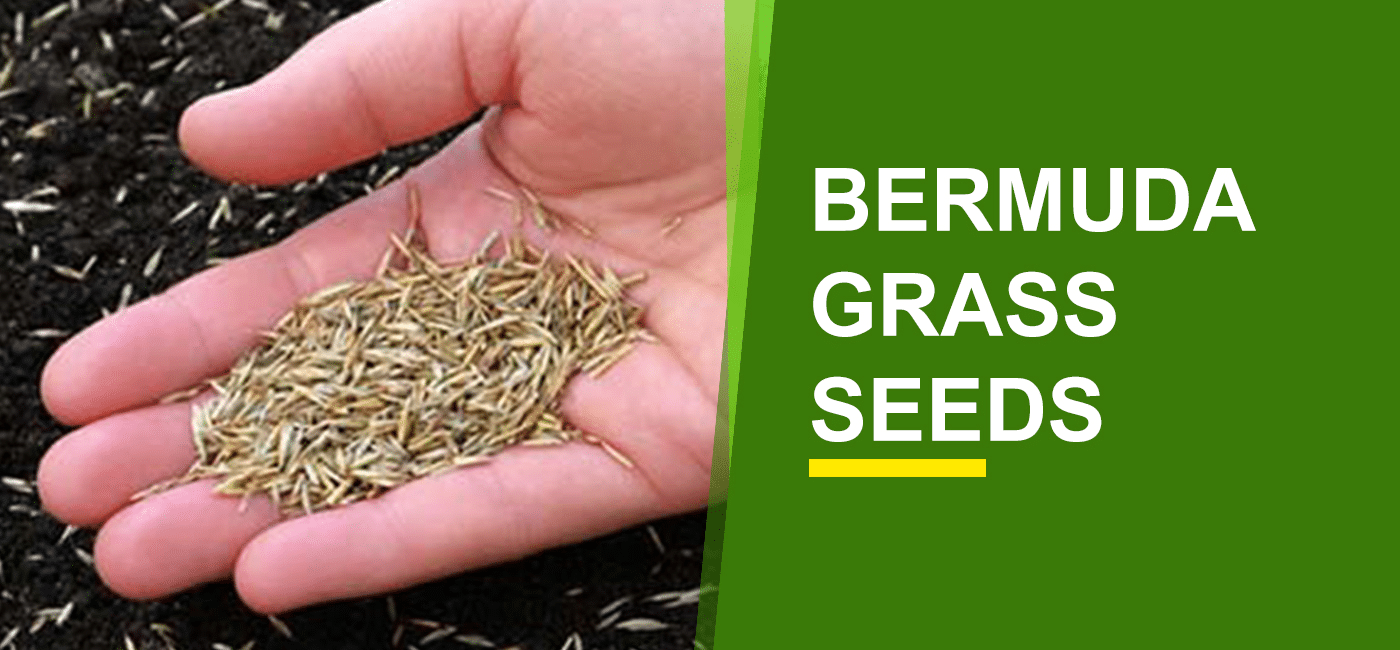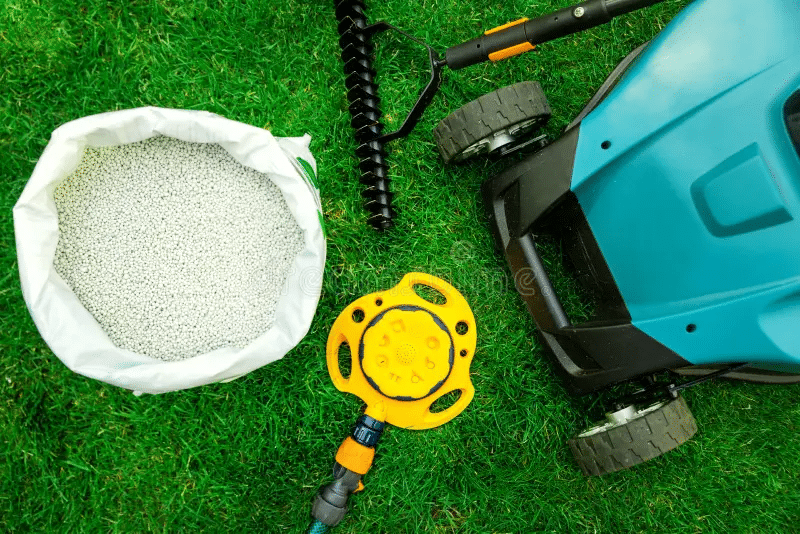Lawn grass can create a lush, green space that improves the visual appeal of any outdoor area. It also functions as a natural rainwater filter, reducing runoff and promoting groundwater recharge. Thus, a well-maintained lawn improves the overall health of the ecosystem.
Bermuda grass is a warm-season perennial grass native to Africa but can be grown in various regions worldwide. It grows well in full sunlight and well-draining soil, making it an excellent choice for lawns and sports fields. Bermuda grass spreads very fast through above-ground stems and underground rhizomes.
Growcycle provides high-quality Bermuda Grass Seeds to produce lush, green lawns. Gardeners can get quality seeds and easy-to-follow tips on growing and maintaining Bermuda grass.
Characteristics of Bermuda Grass
Because of its hardiness and dense growth, it is frequently used for pastures, golf courses, sports fields, and lawns. The key characteristics of Bermuda grass are as follows:
- Growth Habit: Bermuda grass spreads aggressively through above-ground stems and below-ground rhizomes, forming a thick, carpet-like turf. It grows quickly and recovers rapidly from damage, making it ideal for high-traffic areas.
- Sunlight Requirement: This grass requires 6 to 8 hours of sunlight daily. It performs poorly in shaded areas, where growth may weaken.
- Drought Tolerance: It is highly drought-resistant and can grow with a small amount of water. It goes dormant and turns brown during extended dry periods but grows again once watered.
- Soil Preference: It prefers sandy or loamy soils that drain well and have a pH of 5.8 to 7.0. It prefers moderate fertility levels but is adaptable to various soil types.
- Traffic Tolerance: It is highly durable, wear-resistant, and popular for sports fields and playgrounds. It recovers quickly from foot traffic and damage due to its aggressive spreading nature.

Types of Bermuda Grass Seeds
Many types of Bermuda grass seeds are available, each with specific features. Among the most popular seed varieties are:
1. Common Bermuda Grass
- Common Bermuda grass grows quickly and aggressively.
- It has a coarser texture compared to hybrid varieties.
- It is ideal for lawns, pastures, and erosion control.
- It is more resistant to drought and foot traffic.
2. Hybrid Bermuda Grass
- It is usually infertile and propagated through sod or sprigs.
- It has finer texture and denser growth than common Bermuda.
- It can be used on golf courses and professional sports fields.
- It requires more maintenance and frequent mowing.
3. Princess 77 Bermuda Grass
- It is a high-quality Bermuda grass variety.
- It has finer texture, deep green color, and excellent drought resistance.
- It is ideal for premium lawns, golf courses, and athletic fields.
4. Yukon Bermuda Grass
- It can tolerate lower temperatures more than other types.
- It grows slowly but offers a fine-textured, dark green turf.
- It is ideal for transition zones with moderate winters.
5. Sahara Bermuda Grass
- It is drought-resistant and requires less maintenance.
- It is suitable for lawns, parks, and commercial landscaping.
- It is not as fine-textured as hybrid varieties but still covers a good area.

Guide to Prepare and Plant Bermuda Grass Seed
Planting Bermuda grass from seed requires proper preparation and care to ensure a healthy and thriving lawn. Follow these steps for optimal results:
1. Choosing the Right Time to Plant
Bermuda grass grows best when planted in late spring to early summer when soil temperatures are consistently above 65°F. The ideal air temperature for germination is between 75°F and 95°F.
2. Soil Preparation
Clean the Area and remove any herbs, rocks, or debris from the planting area. Make the soil loose by tilling the soil’s top 2-3 inches to improve seed-to-soil contact. Test the pH of the soil because Bermuda grass grows best in soil with a pH of 5.8 to 7.0. Adjust pH by adding lime to raise pH level or sulfur to lower pH according to the need. Add organic matter, compost, or a starter fertilizer to improve soil quality and provide nutrients.
3. Seed Sowing
Spread the Seeds using a broadcast spreader for even distribution. A seeding rate of 1 to 2 pounds per 1,000 square feet is recommended. Lightly lift the soil to cover the seeds with about one-by-eight inches of soil. Push the seeds into the ground with a lawn roller for increased germination.
4. Irrigation Schedule
Initially, water lightly 3 to 4 times daily to keep the soil wet until germination occurs, usually within 7-14 days. When the seedlings emerge, reduce irrigation to once a day. Deep irrigation is provided 1 to 2 times weekly when the lawn is fully established.
Caring for Bermuda Grass
Proper care is required for healthy grass growth of this grass, such as:
- Mowing: Start mowing when the grass is about two inches tall. Set the mower to 0.5 to 2 inches to achieve an attractive appearance. Trim regularly every five to seven days during periods of active growth.
- Fertilization: During the growth season, apply a nitrogen-rich fertilizer (16-4-8) every 4 to 6 weeks. Use slow-release fertilizers to ensure a consistent nutrient supply. Avoid using too much nitrogen, as this can cause excessive growth.
- Herbs Control: Apply a pre-emergent herbicide in early spring to prevent herb growth. Use post-emergent herbicides to control herbs like crabgrass and clover. Maintain a dense lawn to suppress herbs naturally.
- Aeration and Trimming: Aerate the lawn annually to improve air, water, and nutrient penetration. Trim the stem to prevent disease and poor growth.
- Pest and Disease Control: Its common pests include armyworms, grubs, and Bermuda mites. Use insecticides according to need. Proper irrigation and aeration can prevent fungal diseases like dollar spots and brown patches.
- Winter Dormancy and Overseeding: Bermuda grass becomes dormant in the winter and turns brown. In the fall, overseed the area with ryegrass to maintain its green color. Reduce irrigation and fertilization during the colder months.

FAQs
Is Bermuda grass environmentally friendly?
Bermuda grass is eco-friendly because it requires less water than cool-season grasses, absorbs carbon dioxide, prevents soil erosion, and provides a durable, low-maintenance turf in warm climates.
Can Bermuda grass planted in the fall?
Bermuda grass is best planted in late spring or early summer when the soil temperature is higher than 65°F. Fall planting is not recommended, as cooler temperatures can slow germination and establishment.
Can Bermuda grass be used for erosion control?
Bermuda grass’s deep root system and quick spread make it an excellent choice for erosion control. It is commonly used on slopes, roadsides, and construction sites to prevent soil erosion.
The Bottom Line
Bermuda grass is durable and versatile and flourishes when given the proper attention and maintenance. Gardeners can maintain a healthy, lush lawn by knowing its growth habits, water and fertilizer requirements, mowing methods, and pest control measures. Visit Growcycle for a complete guide to care for this grass and keep the lawn healthy and lush green.
